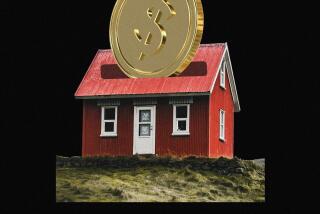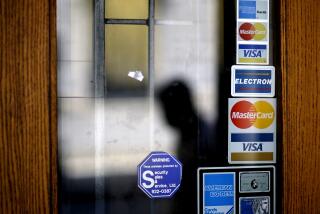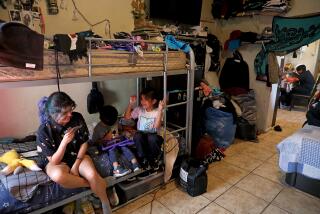Despite a booming economy, many U.S. households are still just holding on

- Share via
Many U.S. households find themselves in a fragile position financially, even in an economy with an unemployment rate near a 50-year low, according to a Federal Reserve survey.
The Fed’s 2018 report on the economic well-being of households, published Thursday, indicated “most measures” of well-being and financial resilience “were similar to, or slightly better than, those in 2017.” The slight improvement coincided with a decline in the average unemployment rate to 3.9% last year, from 4.3% in 2017.
Despite the uptick, however, the results of the 2018 survey indicated that almost 40% of Americans would still struggle in the face of a $400 financial emergency. The statistic, which was a bit better than in the 2017 report, has become a favorite rejoinder to President Trump’s boasts about a strong economy from Democratic politicians, including 2020 presidential candidate Sen. Kamala Harris of California.
“Relatively small, unexpected expenses, such as a car repair or replacing a broken appliance, can be a hardship for many families without adequate savings,” the report said. “When faced with a hypothetical expense of $400, 61% of adults in 2018 say they would cover it, using cash, savings, or a credit card paid off at the next statement,” it added.
“Among the remaining 4 in 10 adults who would have more difficulty covering such an expense, the most common approaches include carrying a balance on credit cards and borrowing from friends or family,” according to the report.
Based on a survey of 11,000 people in October and November 2018, the report showed that a quarter of Americans don’t feel like they are doing “at least OK” financially. That number was higher for black and Latino Americans, at roughly one-third for both. For those making less than $40,000 a year, the share who felt they weren’t doing well was 44%.
“We continue to see the growing U.S. economy supporting most American families,” Fed Gov. Michelle Bowman said in a press release accompanying the report.
“At the same time, the survey does find differences across communities, with just over half of those living in rural areas describing their local economy as good or excellent compared to two-thirds of those living in cities,” Bowman said. “Across the country, many families continue to experience financial distress and struggle to save for retirement and unexpected expenses.”
Boesler writes for Bloomberg
More to Read
Inside the business of entertainment
The Wide Shot brings you news, analysis and insights on everything from streaming wars to production — and what it all means for the future.
You may occasionally receive promotional content from the Los Angeles Times.










